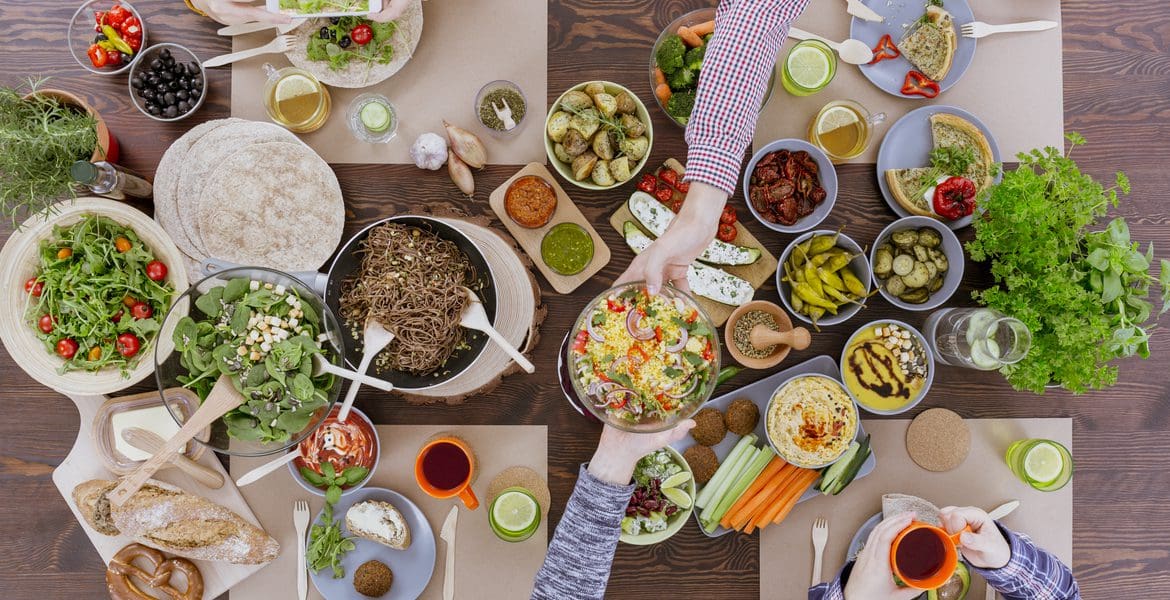Protein has long been associated with meat. Many used to wonder how vegetarians and vegans got their proteins, so you may or may not be surprised how many vegetables and non-meat food items contain high amounts of protein. Here are a few menu items that can help you start swapping out your meat regularly in favor of plants.
Chickpeas
You probably know them best as hummus, but chickpeas can be prepared in a variety of ways. Roast them, add them to a stew or toss them cold in a salad. For every teaspoon of chickpeas there are 2.4 grams of protein; they are low in calories and they are packed with flavor, which makes them a great alternative to meat-based protein.
As hummus, chickpeas are a fantastic sandwich spread or tasty paste for crackers. You can also serve hummus as a dip and enjoy it with raw veggies as a great snack.
Broccoli
There are several leafy green vegetables that are naturally high in protein, but broccoli is really the superstar of the bunch. Just one medium-sized stalk of broccoli has about 4 grams of protein, which can really add up when included in your meal. Broccoli is also low in calories and easy to cook because you can simply steam or boil them for a few minutes. Serve the broccoli with a little pepper and garlic (go heart health!). Broccoli is a great side in a healthy meal.
Wild Rice
Pass up the brown and white rice when you’re shopping, and reach for the wild rice instead. Wild rice has more protein than other types of rice, to the tune of about 7 grams per 1 cup cooked. Wild rice also is the lowest in calories vs white and brown rice. Mix it with beans, another really great source of protein, and you’ve got a classic pair that was made famous in southern cooking. Rice adds healthy carbs to any meal and it’s very filling. Mix it with steamed veggies to pack more flavor in any dish while keeping it low calorie.
Why Avoid Meat?
Why should you go to the trouble of eating plant-based proteins instead of just barbecuing some lean steaks? Cutting back on your red meat intake is good for your body and good for the environment. Substituting plant proteins for red meat just a few times a week can help save water, reduce emissions, and of course, save animals.
Plant-based proteins are generally lower in calories than the same amount of meat, so you can get the nutrients you need without the calories you don’t. Try swapping out your meat with plant proteins, and you may discover some great new meal ideas while you start being healthier and saving the world.







